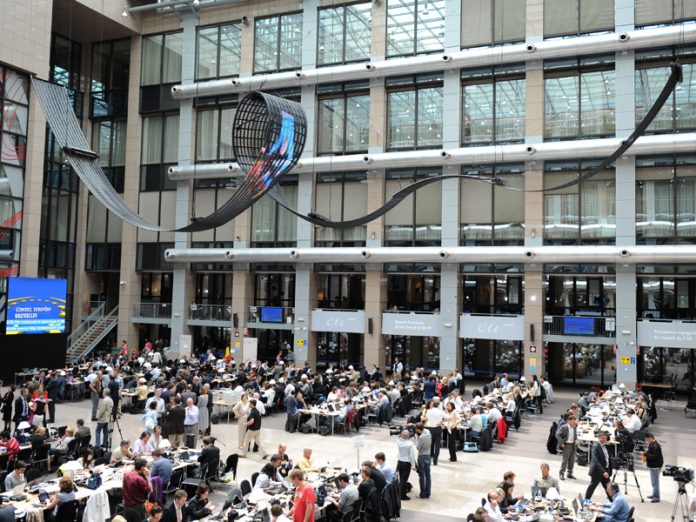EP and Council negotiators reached a deal on new road charging rules for trucks to transition from time-based to distance-based charging, reducing CO2 emissions.
A provisional agreement reached on Wednesday between the European Parliament and Council negotiators will update the rules defining charges EU member states can impose on trucks and lorries, but also buses, vans and passenger cars using trans-European transport (TEN-T) network roads. The aim of the new rules is to move road charging from a time-based model to distance-based or an actual kilometres-driven system, to better reflect the polluter-pays and user-pays principles. In addition, to encouraging the wider use of more environmentally friendly vehicles, under the new rules EU countries will need to set different road charging rates based on CO2 emissions for trucks and buses, as soon as additional rules on CO2 classes for vehicles are set, possibly in 2023, and based on environmental performance for vans and minibuses as of 2026, with considerable charging reductions for zero or low emission vehicles.
From vignettes to tolls
MEPs secured that members states will phase out “vignettes” (time-based road charging) across the core TEN-T network from 2029 for heavy-duty vehicles (trucks, lorries and buses) and instead will start applying tolls (distance-based charges). However, member states will still be able to retain vignettes for a specific parts of this network, if they can prove that a new mode of charging would mean disproportionate relative to expected revenue.
Charging vans and cars
To ensure equal treatment and fair competition, the new rules will be extended not only to buses, but also to lighter vehicles, such as, vans, minibuses and passenger cars. EU countries choosing to charge these vehicles will be able to use toll or vignettes systems. To ensure occasional users and drivers from other EU countries are treated fairly, the provisional deal also created shorter validity periods (one day, one week or 10 days) and price caps on “vignettes” that can be imposed on passenger cars. Five years from the entry into force of these rules, the Commission will assess the charging practice of light-duty vehicles in order to decide if vans used for commercial purposes should follow the same charging models as trucks and if there should be more robust rules on road charges for private cars.
More transparency
MEPs ensured that three years after the entry into force of the agreed rules member states will report publicly on tolls and user charges levied on their territory, including information on the use of these revenues. For MEPs, it is important to make sure that the revenues generated from these charges contributes to sustainable transport, infrastructure and mobility. EP rapporteur Giuseppe Ferrandino (S&D, IT) said: “These new rules represent a milestone in achieving the ambitious decarbonisation policies that we set at the beginning of this Parliament’s legislature. This is also why I am very satisfied with the agreement we reached on the earmarking of some tolls. In full respect of their autonomy, member states will now have the tools they need to be active players in addressing the great environmental challenge we face. The elimination of the vignette for heavy vehicles will standardize a system that is currently excessively fragmented. We will give a strong signal to the world of transport that encourages the use of cleaner vehicles. I am very pleased to have obtained the introduction of the one-day vignette for all vehicles in circulation, which will allow travellers in transit to pay a fair price for their journey. This is also a positive development for tourism: it ensures that travellers will not be penalized.”
The informal deal on Eurovignette rules still needs to be approved by the Council’s Committee of Permanent Representatives and Parliament’s Transport and Tourism committee, and then the Council and Parliament as a whole.

